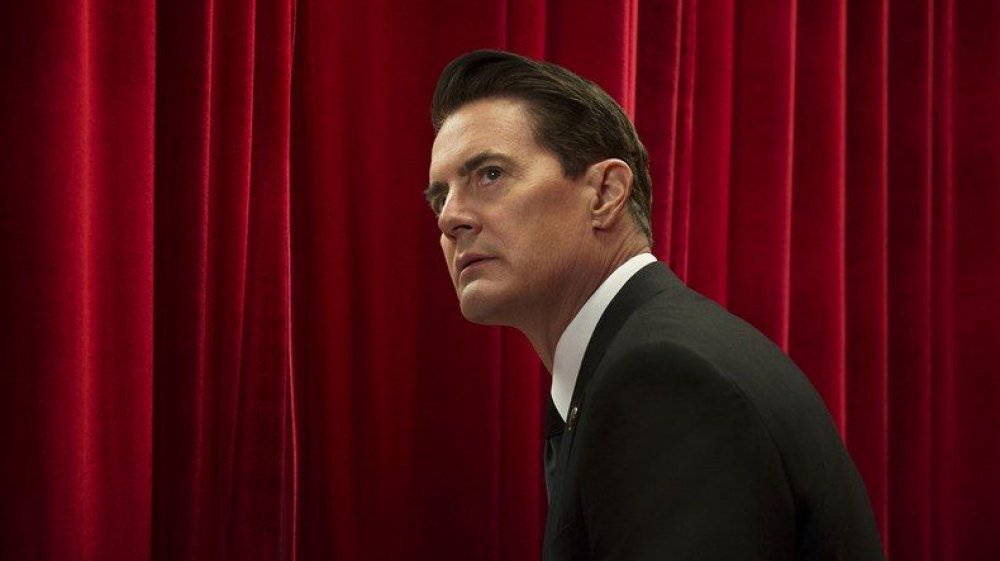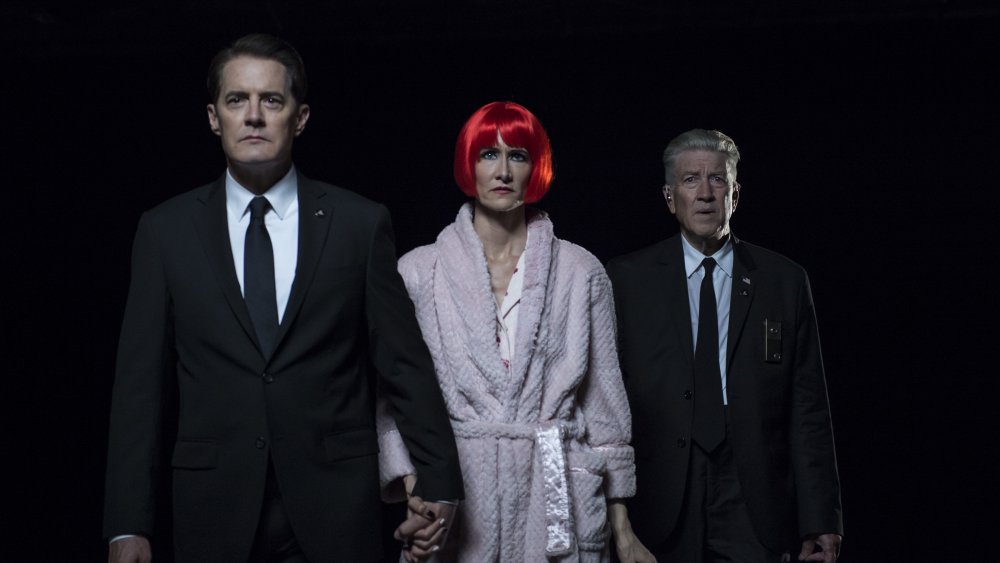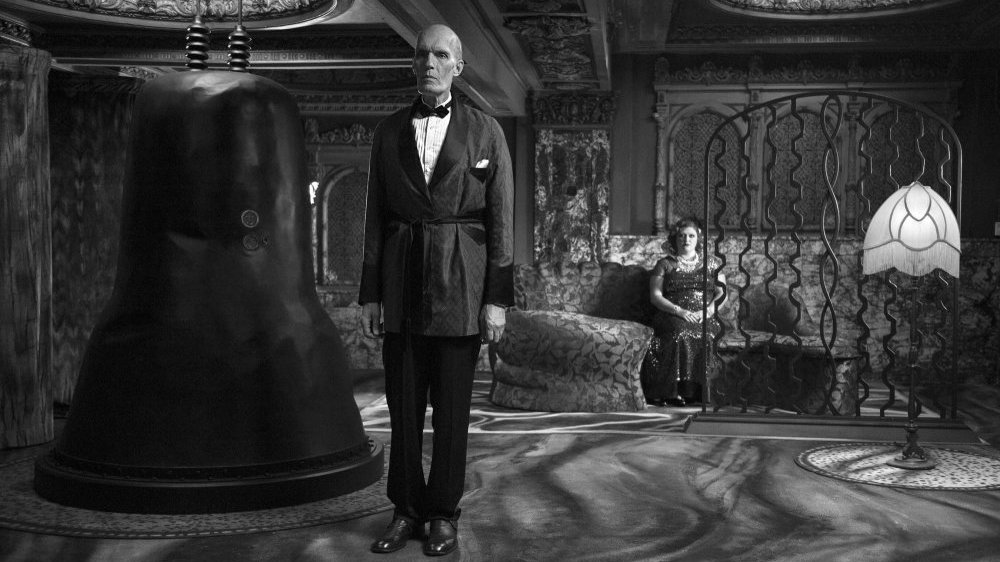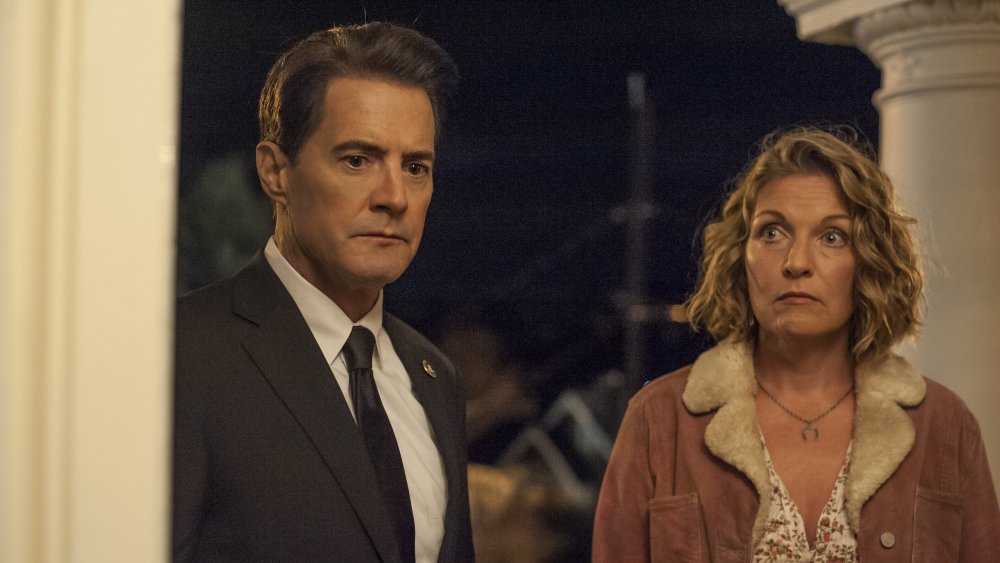Why You May Never See Twin Peaks Season 4
2017 heralded a surprising moment in television history: the resurgence of Twin Peaks after 25 years off the air. Twin Peaks: The Return ran across that summer in an 18-part event on Showtime, and the legacy it left behind in changing its canon will be discussed and puzzled over for another 25 years to come. What any one viewer got out of those 18 episodes depended heavily on what type of person you were — a Twin Peaks fan, specifically, or, more broadly, a David-Lynch-the-auteur-art-film-director-type fan. Given Lynch's penchant for never explaining his creative intent in any way whatsoever, it's fair to assert that all interpretations of the season — and its extremely cryptic ending — are valid.
Philosophical assessments of television as an artistic medium aside, the brass tacks of the situation have caused many to wonder if there will be another season of Twin Peaks in our future. Surely, Showtime would appreciate getting to air more episodes of such a beloved cult series, but do David Lynch and Mark Frost, the original co-creators, have more to tell? Some fans believe that the finale episode is an intentional cliffhanger. It's a pointed question with a very nebulous answer, but here's why you may never see another season of Twin Peaks.
TPTB's Twin Peaks perspective
When The Hollywood Reporter got in touch with David Lynch in April 2020, he skillfully sidestepped the question of more potential Twin Peaks of any kind by couching it in terms of many creative endeavors being shut down because of coronavirus concerns. "All these rumors are flying about, but I can tell you that there's nothing happening in that regard," he said. "It's a rumor that, even if it was true — there's nothing happening." Since Lynch is 74, he has been very strict about staying home for the sake of his health, and has, instead, been painting and working on music as opposed to any film projects that require cooperation from others.
For Mark Frost's part, he is a little more gracious in dodging the question, as he told IndieWire around the same time, "This is a mousetrap of a question, because you always like to leave hope alive for people who are hoping for more. So, I never want to close the door on that entirely. It remains a wonderful, alive creation for people that I hope stays provocative and interesting and open to their various lines of inquiry for a long time to come. As far as I'm concerned, that means the story isn't over." It sounds a little bit like an, "It will live on forever in fan fiction" kind of answer, but Frost isn't wrong to keep the idea open, for himself or fans.
Is a fourth season of Twin Peaks strictly necessary?
Alongside the question of creator willingness is that of whether or not another season of Twin Peaks makes sense. Assessing that concept is much more complicated for this show than most, as part 18 ended with Agent Cooper (Kyle McLachlan) traveling to an alternate universe in which the person Cooper believes is Laura Palmer (Sheryl Lee) survived to adulthood. When he tries to return her to the city of Twin Peaks, however, she doesn't recognize the town, the house Dale believes is hers is owned by someone else, and the episode ends with a patented Sheryl Lee Character Scream as it cuts to black.
We would need a much longer article to get into the possible interpretations of that episode, but it is part of the point that there is no stated point to the almost-totally-dialogue-free final episode — it's more about emotion, and experiencing those feelings through the questionable morality in what Cooper chose to do trying to rewrite history. Frost alluded to this in his IndieWire interview, saying, "['The Return] felt like the right place to end it, given that Cooper had kind of defied the rules to try to undo a terrible wrong, but ended up paying a terrible price, himself."
If you consider that an end, that's a sad one. It might even feel unfair to fans who appreciate Dale's gentle nature that he's been punished so severely with no forgiveness given that what he did going back in time to try and keep Laura from being murdered at all was motivated by compassion. It would be understandable if some didn't want to leave it there. There is a Dale Cooper who will live a happy life in Las Vegas with Jane-E (Naomi Watts) and Sonny Jim, but that is only a salve to take the edge off knowing that The Real Dale Cooper may never see the people he loves ever again.
Where this leaves Twin Peaks, and us
The open-ended nature of The Return and its finale makes it feel very possible to go back. The fact of the matter, however, is that David Lynch is, as we mentioned earlier, 74 years old, and Mark Frost is 66. Given that, it certainly can't wait another 25 years, and the process of making The Return from start to finish took over four years, according to comments from Lynch during a panel he attended in Belgrave soon after the series' 2017 release. The combination of time marching on and the somewhat flaky nature of Lynch's creative cycles is the enemy of any more Twin Peaks.
Even if more episodes were to come to the fore, it's very possible that it wouldn't really be "about" Twin Peaks — the place or its citizens, that is — at all; Lynch has expressed some inscrutable amount of interest in expanding Carrie Page's story. She only appears in part 18 as the alternate-reality Laura-that-isn't-really-Laura that Cooper tries to return to Twin Peaks. Her character is from Odessa, Texas, and the only background fact we ever really learn about her is that she definitely murdered some guy and left him on her couch to rot when Cooper came by looking for her.
All of these explanations are "maybe"s and "possibly"s, but the overarching fact is that it's really unlikely to happen at all. Lynch returned to Twin Peaks on his own schedule and creative imperative, told the story he wanted to (something he couldn't truly accomplish during the show's original run), and left it for us to interpret as we will. Just like the original announcement for The Return, if anything else is going to happen, it will most likely strike like a bolt from the blue.



